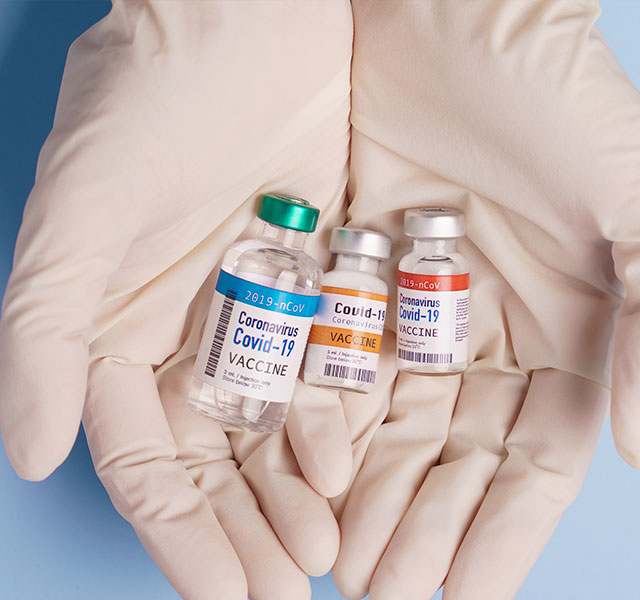The new COVID-19 vaccines are exciting for a number of reasons. They’re incredibly effective, they’re safe, they were created in record time, and they signify a light at the end of the COVID-19 tunnel.
But there’s another reason why these vaccines are so exciting: this is the first time vaccines have been released using messenger RNA (mRNA) technology, which is revolutionizing the way vaccines are created.
How mRNA Vaccines Differ From Traditional Vaccines
Before you can understand how mRNA vaccines are revolutionary, first you need to know how they work. Historically, vaccines have been created using a live but weakened strain of a virus, or a dead virus that has most of its genetic code intact. mRNA vaccines are different. They’re created using just a small part of a virus’s mRNA, or a molecule that carries instructions on how to make a certain protein.
“Our bodies already make messenger RNA—that’s how we make proteins—so these vaccines are just a little piece of external messenger RNA,” says Allison Weinmann, M.D., an infectious disease specialist with Henry Ford Health. “These vaccines trigger our body to create COVID-19’s spike protein. Then, our body recognizes this spike protein as something that shouldn’t be there, so we manufacture proteins (or antibodies) to protect against it. Messenger RNA doesn’t get anywhere near the nucleus of the cell that contains human DNA, and it disintegrates quickly after the ‘message’ is read.”
Why mRNA Technology Is So Exciting
The way in which these COVID-19 vaccines have been created is promising for the future of vaccines in more ways than one. Here are a few reasons why:
- mRNA vaccines are safe for people with compromised immune systems. "Vaccines that contain live, weakened viruses can’t be given to people with compromised immune systems, as they could potentially contract the virus from the vaccine,” says Dr. Weinmann. “But those with compromised immune systems (transplant patients, cancer patients, those with autoimmune diseases) can safely get mRNA vaccines. Since mRNA vaccines only contain one building block of a virus, it’s impossible to contract the virus from the vaccine. We don’t know how effective they will be for them yet, but we do know there should be no safety concern.”
- mRNA vaccines can be created more quickly than other vaccines. With mRNA vaccines, you just have to identify and target one small part of the virus, so they can be adapted more easily than traditional vaccines. “There’s talk of converting the flu vaccine to an mRNA vaccine,” says Dr. Weinmann. “The flu changes every year, so scientists have to scramble if the vaccine does not match the circulating flu virus--it can take months to develop a new flu vaccine. But converting the flu vaccine to an mRNA vaccine may mean that its genetic code can be changed quickly into a new vaccine as needed.”
- mRNA technology can be used in more than just vaccines. Although mRNA technology is new for vaccines, the technology is about 10 years old and is currently used in immunotherapy cancer treatments. “In immunotherapy, mRNA targets a specific part of the tumor, and your body makes antibodies to go against the cancer cells, which then attack the cancer cells. mRNA works the same way in immunotherapy as it does in vaccines—you figure out the most important thing to target, and then go after it,” says Dr. Weinmann.
Scientists have been exploring mRNA technology for decades. Down the road, mRNA technology could be used to combat other diseases, too. This, as they say, is just the beginning.
For answers to common questions about COVID-19 vaccines, visit henryford.com/coronavirus/vaccine-faqs.
Dr. Allison Weinmann is an infectious disease specialist and sees patients at Henry Ford Hospital in Detroit.



